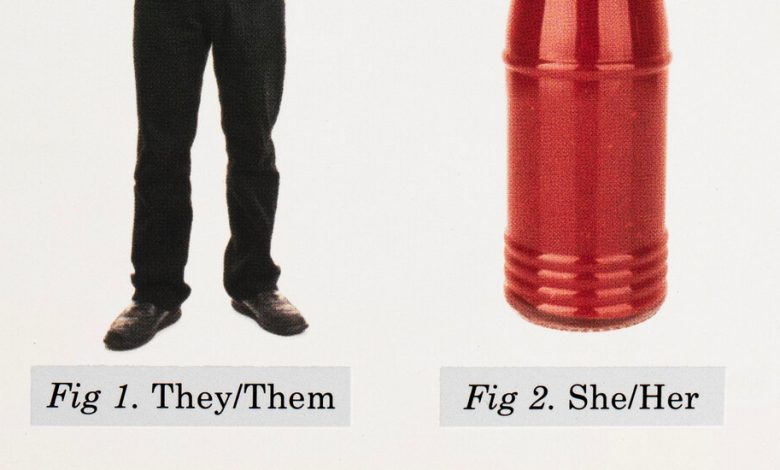The Tiniest Words Generate the Biggest Uproar

As a linguist, I pay close attention to debates about language. But I won’t be telling you anything you don’t already know when I say that in recent years pronouns have become a subject of intense interest for reasons that have nothing to do with grammar. Across the country, debates rage about the effects of letting people decide whether to be called “he,” “she,” “they” or anything else they choose.
My own opinion on the matter makes no sense whatsoever — at least not the opinion that A.I. recently attributed to me. I checked the other day after seeing a social media post that described me as not approving of trans people. Figuring maybe something I wrote about gender-neutral pronouns had gotten lost in translation, I searched and got this: “He found the use of ‘they’ to replace gender-specific pronouns to be clumsy, disruptive, and unnecessary, and that it could sometimes reduce clarity. McWhorter also suggested other gender-neutral pronouns, including ‘que, ‘s/he, and ‘one.’”
Hmm, not a word of that is true. I wouldn’t be caught dead endorsing the ungainly, unpronounceable “s/he” or the hopelessly wooden “one,” and God knows what “que” is.
In reality, I am very much in favor of the new prevalence of gender-neutral pronominal usage. As conceptions of gender become more fluid, we need a pronoun that allows for more possibility. Plus, “they” had already been used in a singular, gender-neutral way (“Each student has an hour to complete their test”) for several centuries. Shakespeare did it in “The Comedy of Errors”: “There’s not a man I meet but doth salute me / As if I were their well-acquainted friend.” Many sticklers consider it incorrect, but it is native to casual speech (including, I suspect, that of many of the sticklers).
The most heated arguments about gender-neutral pronouns, however, render a different objection: They claim that allowing people to choose their own pronouns is a gateway to things like gender-affirming surgery, gender-neutral bathrooms and trans women on women’s sports teams. People who regard such things as dangerous write me to tell me this all the time.
I’m not here to engage in a debate about those outcomes, and I’ll leave biology to the experts. But this idea — that pronouns can encourage people to become trans — reflects a grave misunderstanding of how language works.